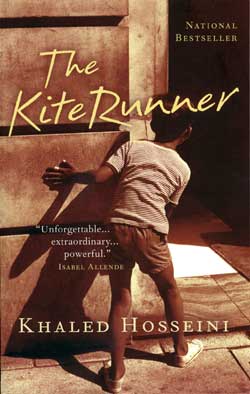 The Book Thief by Markus Zusak
The Book Thief by Markus Zusak "I could introduce myself properly, but it's not really necessary. You will know me well enough and soon enough, depending on a diverse range of variables. It suffices to say that at some point in time, I will be standing over you, as genially as possible. Your soul will be in my arms. A color will be perched on my shoulder. I will carry you gently away" (4).
So begins the narrator's description of himself in this unique, 550-page young adult novel. Interesting in this case, the narrator is Death, who is omniscient, focussing particularly on the young life of Liesel Meminger - otherwise known as The Book Thief. Liesel has just lost her mother and brother and has arrived at Himmel Street, Molching, Nazi Germany. She stole her first book at the site of her brother's burial, and has decided that one is not enough after being introduced to words and reading by her foster father. Death watches her as she grows up with her beloved Papa, a cursing yet loving Mama, and best friend, Rudy.
This book was excellent, mostly for the unique perspective from which it is told. Death is ever-present, which is fitting considering the subject and time period of the novel. Particularly heartwrenching were the scenes scattered here and there throughout the book that told of Death's presence at scenes of such places as Stalingrad and Auschwitz: "Please believe me when I tell you that I picked up each soul that day as if it were newly born. I even kissed a few weary, poisoned cheeks. I listened to their last, gasping cries. Their vanishing words. I watched their love visions and freed them from their fear. [. . .] They were French, they were Jews, and they were you" (350).
As the war presses ever closer, Liesel's foster parents hide a Jew, Max, in their basement, and Liesel and Max create a strong bond based on Liesel's imagination and their common love of words.
This novel is an account of a German family's struggles in Nazi-occupied Germany, of growing up amid war, of friendship and love, of death, but mostly it is a book about the power of words, words that have the power to kill, heal, inspire, and comfort. As Liesel states, "I have hated the words and I have loved them" (528).




